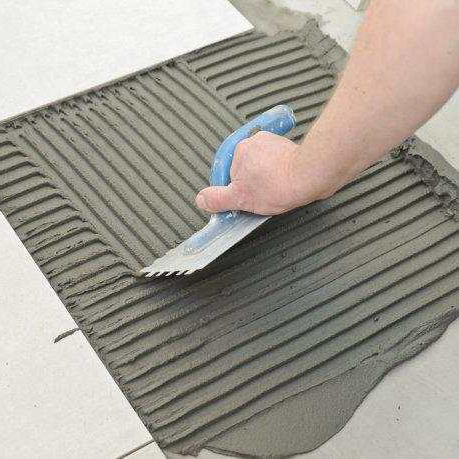
ສ.ຫ. . 22, 2025 17:17 ກັບໄປທີ່ລາຍຊື່
tile-bonding-additives-for-stronger-bonds
At Jingzuan Chemical Technology, we’ve dedicated over 15 years to perfecting additives that redefine tile installation reliability, with cellulose for tile bonding and cellulose for tile adhesive emerging as essential components in modern construction. As a construction chemical additive factory, we recognize that the strength of a tile bond depends on the quality of its additives—and our formulations are engineered to deliver unwavering performance in every application.
Cellulose for Tile Bonding Ensures Long-Lasting Adhesion
Cellulose for tile bonding is the unsung hero of durable tile installations, working behind the scenes to transform ordinary mortar into a high-performance bonding agent. Its unique molecular structure enhances water retention in cement-based mortars, preventing premature drying that can weaken the bond between tiles and substrates. This water retention also improves workability, allowing installers to adjust tiles with ease before the mortar sets—reducing rework and ensuring precise alignment. In humid environments like bathrooms or kitchens, cellulose for tile bonding resists moisture penetration, minimizing the risk of mold growth or bond degradation over time. Our formulations, developed through extensive testing and market validation, ensure that even in high-traffic areas like commercial lobbies or residential hallways, tiles remain firmly anchored, avoiding costly repairs and ensuring long-term structural integrity.
Cellulose for Tile Adhesive Enhances Mortar Workability
Cellulose for tile adhesive is specifically designed to address the challenges of tile installation, from spreading consistency to open-time flexibility. When integrated into gypsum or cement-based mortars, it acts as a thickener, ensuring the mortar maintains a uniform texture that spreads smoothly across substrates—eliminating gaps that could lead to tile loosening. This enhanced workability is particularly valuable for large-format tiles, where even application is critical to preventing uneven stress distribution. Our cellulose for tile adhesive also extends the open time of the mortar, giving installers more latitude to position tiles accurately without rushing, a feature that reduces waste and improves efficiency on job sites. Backed by our ISO 9001 and CE certifications, each batch undergoes rigorous testing in our advanced lab, where parameters like viscosity and water retention are verified to meet the strict standards that industrial partners demand.
Tile Bonding Cellulose Adapts to Diverse Substrates
Tile bonding cellulose stands out for its ability to perform across a wide range of substrates, from concrete and drywall to more challenging surfaces like plywood or metal. This versatility stems from its unique ability to form a flexible film within the mortar, accommodating minor substrate movements without compromising the bond—a crucial attribute in buildings where temperature fluctuations or settling are common. In exterior applications, such as outdoor patios or facades, tile bonding cellulose enhances weather resistance, protecting the bond from rain, UV exposure, and freeze-thaw cycles. Our production process, leveraging German technology and precision equipment, ensures that tile bonding cellulose maintains consistent performance regardless of the substrate, making it a reliable choice for wholesalers serving diverse construction markets, from residential renovations to large-scale commercial projects.
Tile Adhesive Cellulose Boosts Crack Resistance
Tile adhesive cellulose plays a pivotal role in preventing cracks that can undermine tile installations, a benefit that stems from its ability to improve mortar flexibility and cohesion. When mixed into adhesives, it creates a network of fibers that distribute stress evenly across the bond line, absorbing impacts and reducing the risk of hairline cracks that can allow moisture to seep beneath tiles. This crack resistance is especially valuable in areas prone to vibration, such as near machinery or in high-traffic zones, where constant movement can weaken traditional mortars. Our tile adhesive cellulose is produced using refined cotton sourced from trusted suppliers, with each batch subjected to strict raw material checks to ensure purity. Combined with our state-of-the-art reaction kettles and quality control protocols, this commitment to excellence ensures that the cellulose retains its integrity, delivering consistent crack resistance in every application.
Tile Bonding Additives FAQ
How does cellulose for tile bonding improve bond strength in wet areas?
Cellulose for tile bonding enhances water retention in mortar, preventing moisture-related bond breakdown and resisting mold growth, ensuring strong adhesion in bathrooms, kitchens, and other wet environments.
Can cellulose for tile adhesive be used with both cement and gypsum-based mortars?
Yes, cellulose for tile adhesive is formulated to integrate seamlessly with both cement and gypsum-based mortars, enhancing workability and bond strength across different substrate types.
What makes tile bonding cellulose suitable for large-format tile installations?
Tile bonding cellulose improves mortar spreadability and open time, allowing for precise alignment of large tiles and ensuring uniform adhesion that prevents warping or loosening over time.
How does tile adhesive cellulose resist cracks in high-traffic areas?
Tile adhesive cellulose forms a flexible network within the mortar, absorbing impacts and distributing stress, reducing the risk of cracks caused by foot traffic, vibrations, or structural movement.
What quality tests ensure the consistency of your cellulose for tile bonding?
Our cellulose for tile bonding undergoes rigorous lab testing, including checks for water retention, viscosity, and bond strength, with third-party audits available to verify performance and purity.
-
tile-bonding-additives-for-stronger-bonds
ຂ່າວAug.22,2025
-
construction-grade-rdp-for-wholesale-needs
ຂ່າວAug.22,2025
-
trusted-wholesale-hec-partners
ຂ່າວAug.22,2025
-
hec-solutions-for-industrial-excellence
ຂ່າວAug.22,2025
-
construction-additives-need-hpmc-essentials
ຂ່າວAug.22,2025
-
hpmc-versatile-cellulose-ether-for-industries
ຂ່າວAug.22,2025








